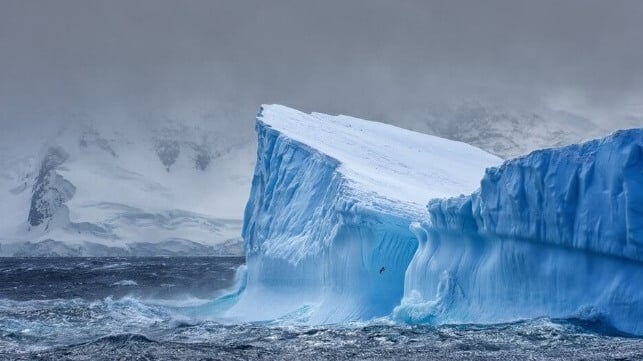Greece Embarks on its Inaugural Antarctic Expedition

This fall, Greece will participate in a mission to Antarctica for the first time ever. The expedition is a joint study tour to the South Pole with Bulgarian researchers, and it was finalized last week during an international polar conference held in the Bulgarian resort town of Aheloy. The researchers will be aboard the Bulgarian military research vessel St. Cyril and Methodius.
“This is a big step for us because it is the first Greece will send its scientists,” said Simeon Konstantinidis, President of the NGO Hellenic Polar Zones Society. Konstantinidis attended the conference in Bulgaria, which was held under the auspices of the EU programs EUPolarNet-2 and POLARIN.
Konstantinidis also added that his organization is also planning to build a weather station in Antarctica, possibly from next year.
Meanwhile, the 27 member countries that form the Commission for the Conservation of Antarctic Marine Living Resources (CCAMLR), are holding an annual meeting this week in Hobart, Australia. Expectations are high with members expected to agree on approving the proposed four marine protected areas (MPAs) in Southern Ocean. Previous attempts have failed, leaving the fragile ecosystem open to human-linked environmental stressors such as whaling and overfishing.
However, progress was made at a July symposium in South Korea, where CCAMLR members advanced efforts to develop a marine protected area (MPA) along the western Antarctic peninsula. This became the first time in years that all CCAMLR members showed a willingness to adopt additional protections in Antarctica.

that matters most
Get the latest maritime news delivered to your inbox daily.
CCAMLR operates through consensus, meaning decisions must be unanimous. Since 2016, China and Russia have opposed plans to develop new Antarctic MPAs despite the majority of members supporting it.
It remains to be seen if CCAMLR will reach consensus on the four proposed MPAs this year. These include Weddell Sea Phase 1 MPA, East Antarctic MPA, Antarctic Peninsula MPA and Weddell Sea Phase 2 MPA. Along the existing Ross Sea region MPA, the four proposed areas would protect 26 percent of the Southern Sea and nearly 3 percent of the global ocean.
